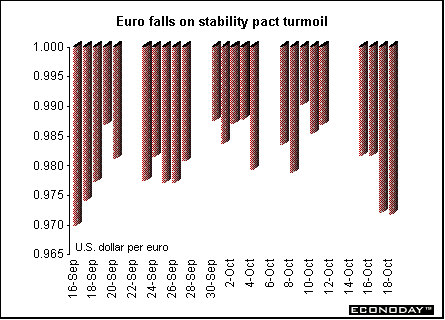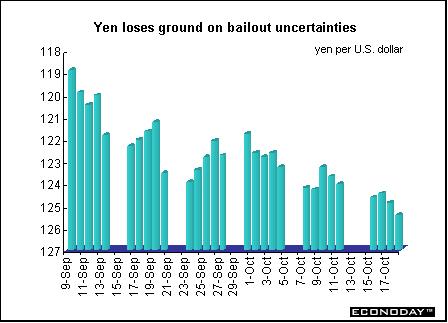
Currencies
The dollar benefited from higher equities as overseas investors continued to be lured into U.S. markets. The dollar had its sixth weekly gain in seven against the yen as the better-than-expected corporate earnings were interpreted as evidence that the U.S. economic recovery is boosting profits. The dollar also had its third weekly advance in four against the euro thanks to improving stock market performance. The U.S. continues to be the best place to invest. It's estimated that about two-thirds of S&P 500 companies which have reported so far have beaten analysts' profit projections, although there have been some notable exceptions. With so many companies beating Wall Street estimates, it is little wonder the dollar is stronger.

Weighing on the euro are concerns about the European Union's Stability and Growth Pact, EU enlargement, and whether the ECB will or will not ease policy. Widening budget deficits in Europe contributed to the euro's decline by fueling speculation that the ECB will be reluctant to reduce interest rates unless governments curb spending. German Finance Minister Hans Eichel said the government's deficit will exceed the European Union's limit of 3 percent. Portugal has already gone past that ceiling and France and Italy are close to the limit as well.
Demand for yen also slowed. The Japanese government has delayed announcing details of how it will turn around a four-year decline in consumer prices and how banks can write off bad loans worth trillions of yen. Traders and investors say they are reluctant to buy yen-based assets until they see details of the government's plans. Foreign investors have reduced their holdings of Japanese stocks for 15 of the past 17 weeks, according to the Tokyo Stock Exchange.



Last Week's Highlights • Global Stock Market Indexes • Recap of Global Markets • Currencies • Indicator Scoreboard

The Bottom Line • Looking Ahead
|
![[Back To Archive]](../../../images/backtoarchive.gif)